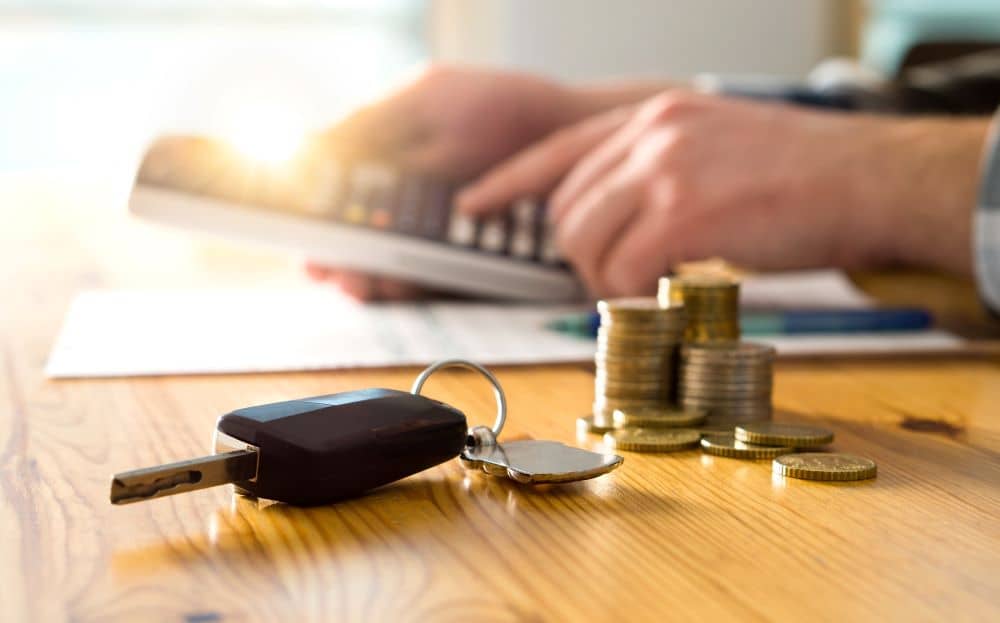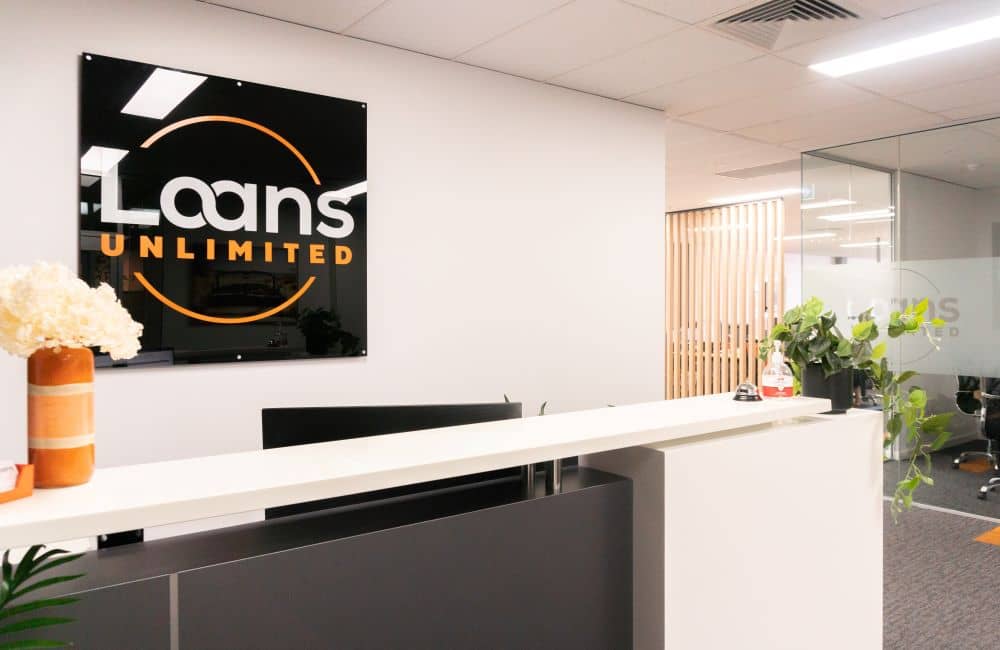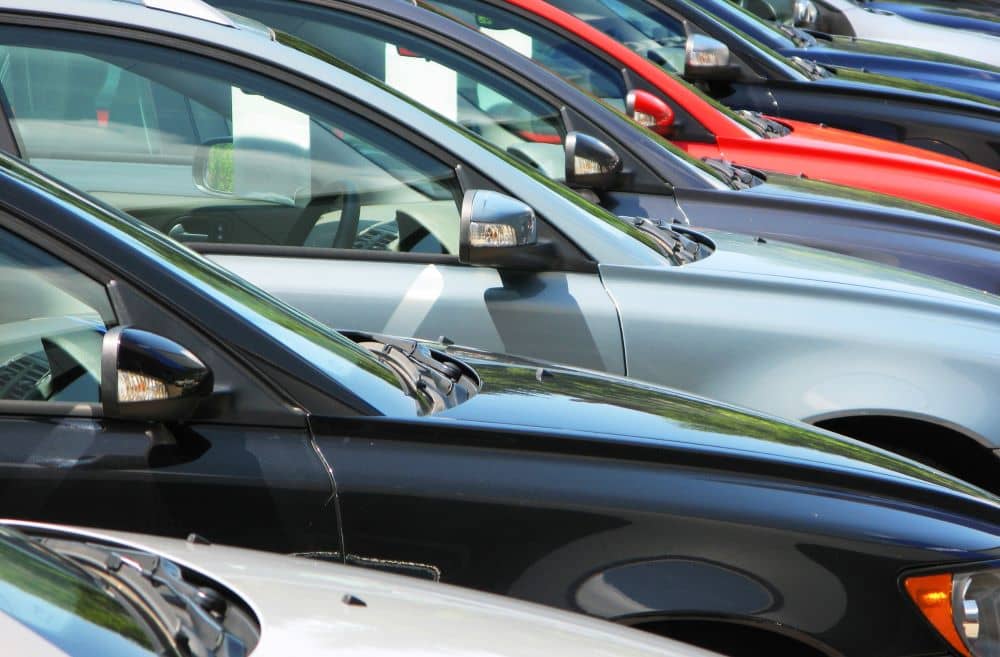Mortgages and refinancing are not the only things in the finance world that seem to be booming right now. We can also add cars to the list, mainly used cars. The numbers do not lie, as used cars have increased since the end of 2020. As a car buyer, if that fact is not incentive enough, this probably will: interest rates for car loans continue to decrease. And if you plan to sell your current car, you will find yourself in a market that’s on your side.
Before you sell your car, however, it makes sense to know how much your vehicle is worth. This blog post will tell you how you can easily calculate the trade-in value of your vehicle within minutes.
Use a Car Value Estimator
It is now easy to determine your car’s value. You don’t even have to go out and talk to a car sales representative in person. Just go online and use car valution estimators that will tell you your vehicle’s current value in seconds.
However, be sure to note that some cars need you to do more in-depth research due to market fluctuations. This means that certain vehicles quickly change in value depending on the exchange rate, manufacturer performance, and other conditions. These online tools can give you a correct valuation but do take them as merely a guide.
To get a close-to-accurate value, always be honest when disclosing details about your car. It’s also a good idea to get an estimate for the market value of the vehicle and not the book value. The market value denotes the amount that people are willing to pay for the car at the most current time. On the other hand, book values are utilised by car dealerships. They may not be accurate because publish dates may lag due to wholesale pricing, market conditions, and other issues.
Know What Affects Your Car’s Value
When estimating your car’s value, you will need to provide certain pieces of information. Typically, the more questions or details you are requested to give, the more accurate the valuation you will get. That’s why it is essential to be truthful when you answer them.
Questionnaires will differ, but here are the most common that you should provide to get the estimated value of your vehicle:
- Year, Make, and Model: Most, if not all, valuation tools will ask for these details. You will also have to provide your car’s colour, trim, and interior information. If you do not know what the answers are, you can check your owner’s manual.
- Equipment and Features: When you choose a car to buy, you will surely look at its features. This is also true for other people who may be considering purchasing your vehicle. Remember that some features can make or break your car’s value. Once again, be honest when disclosing information about your vehicle, including its special or custom equipment and other features. For example, if it has a heated steering wheel or leather seats, you should divulge these facts.
- Distance Travelled: Have you ever bought a used car before? If so, you’re probably aware that its total distance impacts the resale value significantly. In other words, the more kilometres the vehicle has been driven, the more affordable it becomes. Find out your car’s total distance travelled by reading the odometer.
- Condition: If you search for similar cars for sale, you will most likely see that sellers claim their vehicles are in pristine condition. More often than not, the aim here is to bait more buyers to put their money on the car. That’s because the vehicle’s condition is used as an indicator of its value. Valuation tools will usually enquire about your vehicle’s condition, letting you rate it from excellent to average to poor. Don’t be tempted to overestimate its condition to truly get a good picture of its market price.
Note that the trade-in value of your car represents how much dealerships may be willing to pay for it. Some may call it the dealer resale value, although there is a slight distinction between the two. The dealer value can sometimes be higher than the trade-in value simply because it is the amount that the dealer advertises for a particular vehicle. Nevertheless, like selling used electronics and other second-hand products, the trade-in value will depend greatly on the condition of your car.

Get Local Prices for Comparison
Your job is not done even after getting a few estimates from various online valuation tools. There are still a few things that you need to do. It is always a good idea to get an appraisal for your vehicle in your area. But don’t worry; you do not have to go anywhere. Just take a look at popularly used car marketplaces, including eBay Motors, Craigslist, and Facebook Marketplace. Don’t forget to search in your location specifically to see how much cars of the same make and model are worth in your area.
It’s also wise to search for vehicles with the same distance travelled and model year. However, don’t focus too much on specific searches since the results do not have to be an exact match. Your goal is to simply get a good grasp on how much your car is worth if you trade it in.
So, for example, an online valuation tool tells you that your car can be sold for about $10,000. When you search on Facebook Marketplace, sellers close to you sell similar vehicles for only $7,000. Having these figures to take note of gives you a useful indication of the amount that you can expect to get from your car when you sell it.
What to Do to Get the Most for Your Car’s Trade-in Value
Your car is an investment. And just like any other investment you have made, you want to get the most out of it. Your car is undoubtedly one of the biggest purchases you will ever make. However, factors like its interior and exterior conditions affect its value. Thankfully, these are things that you can control (to an extent, of course).
Before going to a dealer and trading in your car, we recommend that you ensure your car is in its best possible condition. You do not have to spend a lot of money because any extras will not truly have a significant impact on the final car valuation offer. It’s all about finding the balance. You may be thinking about extending your loan or perhaps adding more so you can upgrade your vehicle before selling it. Once again, you do not have to break the bank for an auto loan.
Washing the car, repairing minor scratches or any visual issues, and adding a few accessories like bull bars can increase your car’s value, so try your best not to skip these steps.

What if you want to trade in a car if it is not fully paid off yet? Technically, you are allowed to trade in a vehicle with a balance owing or if you’re still making payments on it. However, it’s not for everyone, as it mostly depends on how much equity you have. Equity pertains to the current value of the car and the amount you still owe on your loan. Therefore, you can either have positive equity (your car is worth more than the amount you owe) or negative equity (you owe more than what your vehicle is worth). You should also know about trading in your car when you still owe money on it.
Get the best deal by comparing the offered trade-in valuation and sale price that you get from the online valuation tools and pricing guides. Note that trade-in values are merely a credit deducted from the car price you would like to purchase. Therefore, the trick is to go for the lowest overall price after you have made the calculation.
As you research trade-in price, you may also want to consider selling the vehicle to a private party. Compare thoroughly before making the final decision. If the figure offered to you is much higher than trade-ins, you might want to pick this option instead.
If you are unsure how your loan will effect your next car purchase, talk to the team at Loans Unlimited, we can make sure you are making the smart decision for your finances.



